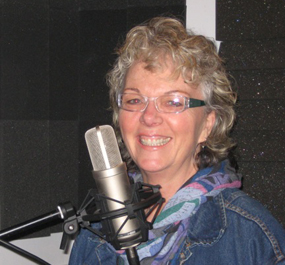

Join BirdNote tomorrow, November 30th!
Illustrator David Sibley and actor H. Jon Benjamin will face off in the bird illustration battle of the century during BirdNote's Year-end Celebration and Auction!
The native names of birds sometimes distill the essence of their appearance or behavior. In the Cherokee language, for instance, the Meadowlark is called "star," because of the way the bird's tail spreads out when it soars. To the Northwest Coastal people, this Swainson's Thrush is known as the "Salmonberry Bird." The name derives from its annual arrival in the Pacific Northwest in May, when salmonberries ripen in the forests. Here, the Salmonberry Bird is seen eating elderberries.
BirdNote®
Salmonberry Bird
Written by Todd Peterson
This is BirdNote!
[Song of Swainson's Thrush]
The names of birds can tell stories. We’re hearing the song of the “Salmonberry Bird,” the name indigenous Northwest Coastal people gave to the bird known in English as the Swainson’s Thrush. The Salmonberry Bird’s name comes from its annual arrival in forests across northern regions of the continent, in May, when salmonberries ripen.
The native names of birds sometimes distill the essence of their appearance or behavior. In the Cherokee language, for instance, the Meadowlark is called “star,” because of the way the bird’s tail spreads out when it soars.
[Song of the Western Meadowlark]
The Cherokee name for nuthatch is “deaf,” possibly because of the bird’s disregard for the presence of humans.
[Call of the Red-breasted Nuthatch]
The names of birds in native languages express a long affiliation between people and place. As the writer Nancy Lord observes, “Words have power. Languages connected to place help us respect local knowledge, to ask and answer the tough questions about how the human and the nonhuman can live together in a tolerant and dignified way.”
[Song of the Swainson’s Thrush]
The song of the Salmonberry Bird reminds us of the abiding connection between birds and people and the nourishment nature provides us both.
[Song of the Swainson’s Thrush]
For BirdNote, I’m Mary McCann.
###
Bird sounds provided by The Macaulay Library of Natural Sounds at the Cornell Lab of Ornithology, Ithaca, New York. Song and “quip” call of the Swainson’s Thrush and Red-breasted Nuthatch recorded by G.A. Keller. Western Meadowlark recorded by Gerrit Vyn.
Nancy Lord quote used with permission from Nancy Lord at [email protected]
Producer: John Kessler
Executive Producer: Chris Peterson
© 2013 Tune In to Nature.org May 2013/2016/2020
ID# 060506SWTHKPLU SWTH-02b









